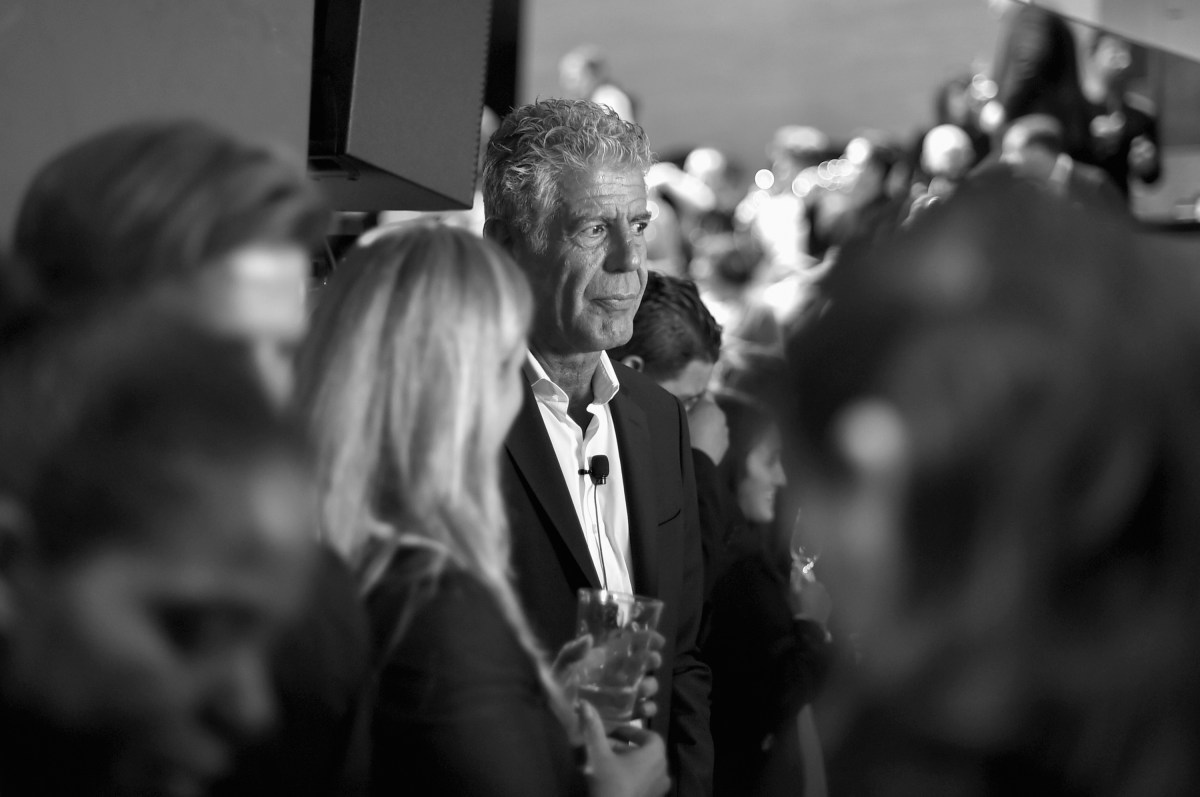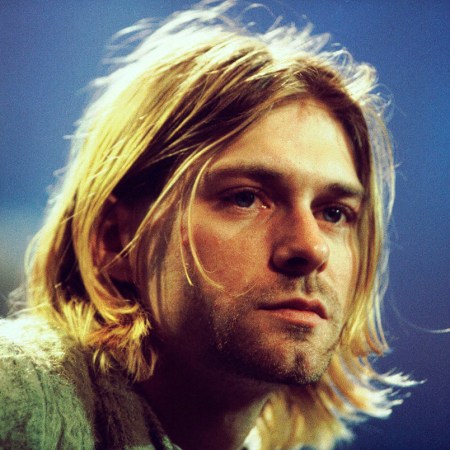The part from Roadrunner: A Film About Anthony Bourdain that’s stuck with me is towards the end of the documentary, when David Chang talks about Bourdain’s taste in music.
“This is what Tony told me was his favorite song,” he says, pressing play on “Anemone” by the Brian Jonestown Massacre. The track’s haunting intro rolls in and we get some old footage of Bourdain roving around a dark beach in Provincetown, Massachusetts, where his culinary career began in the 1970s. “Great song,” Chang allows. “But it’s heroin music.”
I saw the film at a movie theater, and I remember feeling chills when Chang said that. Most of the internet wanted to focus on the dubious docu-ethics of digitally recreating Bourdain’s voice in order to “read” an email he’d sent to the artist David Choe, but I was more rocked by the content of that email. Bourdain wrote: “My life is sort of shit now. You are successful, and I am successful, and I’m wondering: Are you happy?” I was preoccupied with Bourdain’s matter-of-fact opiate memories, at one time confessing in a voiceover: “The first time I shot up, I looked at myself in the mirror with a big grin. Part of me wanted to be a dope fiend. My whole life was leading up to that point.”
In light of this week’s news that another Bourdain project is coming — an unauthorized biography by journalist Charles Leerhsen, to be released by Simon and Schuster on Oct. 11 — some of the previous postmortem media has already been cast as generous and polished accounts of the beloved chef’s life and legacy. (There was Roadrunner, plus a number of books — Bourdain: The Definitive Oral Biography, In the Weeds: Around the World and Behind the Scenes with Anthony Bourdain, World Travel: An Irreverent Guide, etc.)
A recent New York Times profile paints Leerhsen’s book as the one project Bourdain’s camp (his agent, his brother, his closest friends) doesn’t want you to see. In letters to the publisher, his team has called the upcoming release “defamatory,” “hurtful” and “fabricated,” while expressing discomfort and surprise at just how much intimate information Leerhsen has included surrounding the final days and hours of Bourdain’s life.
That access is thanks to Ottavia Busia-Bourdain, who controls Bourdain’s estate and granted Leerhsen free rein over the late chef’s personal phone and laptop. The details are intense, and provide the clearest picture yet of Bourdain’s deteriorating mental health before he committed suicide in a French hotel in June 2018. Some of them are included in the Times piece, with a specific focus on tortured text message exchanges between Bourdain and his girlfriend Asia Argento, who had been photographed with another man the week before Bourdain hanged himself. In fact, one such exchange starts the book.
Bourdain reportedly texted: “I am okay. I am not spiteful. I am not jealous that you have been with another man. I do not own you. You are free. As I said. As I promised. As I truly meant. But you were careless. You were reckless with my heart. My life.”
There are other things, like riffs on the streaks of possessiveness and jealousy that appeared to be a theme throughout Bourdain and Argento’s relationship (she directed episodes of his show against the wishes of the crew, he was known to have spent hundreds of thousands of dollars on her), or minute-to-minute accounts of Bourdain’s mood on that trip, the times he went out to drink alone and a text he sent to his ex-wife that would devastate his millions of supporters. “I hate my fans, too. I hate being famous. I hate my job. I am lonely and living in constant uncertainty.”
It’s unclear why Busia-Bourdain was okay with a biographer uncovering these personal messages, though by all accounts she and her ex-husband were close confidants until his very last day. Whatever her motivation, though, or Leerhsen’s, who says he wanted to write a counterpoint to “an official Bourdain product,” it’s clear that Bourdainalia is well past its boiling point.
Rifling through texts and emails sent in the hours leading up to one’s suicide does little to obscure the reason for this project. Leerhsen wanted to have a guess at why Bourdain did it, which is a query that will obviously sell books — and technically, considering the subject, has significant journalistic interest — but should also leave us feeling hollow, uncomfortable and no more empathetic or enlightened than we were before.
Bourdain’s life has been prodded enough. We know he was a grouch. We know he could be a tyrannical boss. We know that his relationship with his daughter was fraught. He spent 250 days of the year traveling. Who can sustain such a schedule and keep the relationships in their life loving and simple?
Every Bourdain project has been imperfect, in some way, and this one will be no different (his close friend Eric Ripert has offered up likely the most concise summary of what to expect — per the Times, “He said he found many inaccuracies, but was surprised that it contained intimate details from those days in France that he had told only to a few people…”) but let’s keep in mind that every account of Bourdain’s life, to this point, has been “raw.” He wasn’t Mr. Rogers. It’s literally impossible to talk about Bourdain without acknowledging his outsider childhood, his experimental drug use, his misanthropic disdain.
What qualifies this release as “realer” than all the others, in the end, is its publishing of words Bourdain never wanted any of us to see. This is much less than anyone deserves, but it’s especially unfair to a man who never asked for all the attention in the first place, who, while known to sometimes let friends and family down, would walk through hell (and eat whatever grows there) to create a connection with a stranger.
If you want to solve the mystery of Anthony Bourdain, you won’t find it in the final and most upsetting moments of his life. That’s not because the final version of Bourdain was any less “real” than he was as a child, as a Provincetown dishwasher or as an Emmy-winning documentarian. It’s because there’s no mystery to solve. He was a tremendous and troubled man, one lost too soon, and one who already left us more to read and watch than we seem to appreciate. Please, let’s stop adding to the pile.
Thanks for reading InsideHook. Sign up for our daily newsletter and be in the know.
















